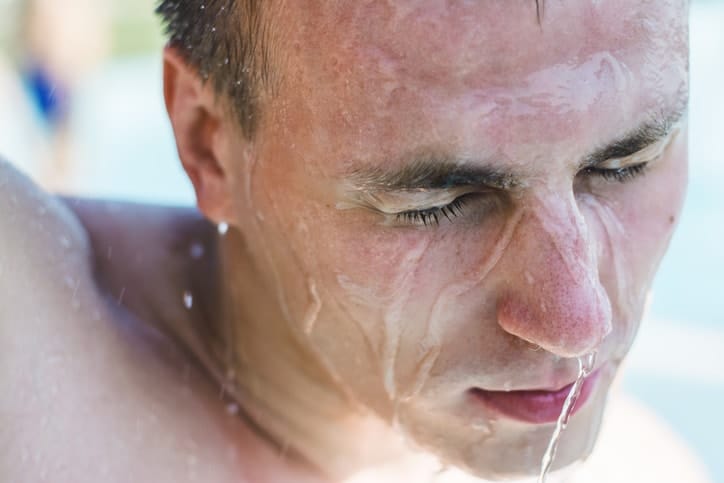
Swimmer’s ear is among the hazards of swimming, but you can also get it in other ways. This infection can cause serious complications without proper treatment, so it’s important to take steps to reduce your risk of getting it. Find out more about swimmer’s ear, including what causes it, how to treat it and how you can prevent it.
Causes of Swimmer’s Ear
Swimmer’s ear occurs when you have an infection in your outer ear. This can happen when you have water in your ear from swimming or when you have excess moisture in your ear from perspiring. You can also get swimmer’s ear if you have any scratches inside your ear canal that let bacteria in. This infection often results from bacteria, although it can also be caused by a virus or fungus.
You have a higher risk of having swimmer’s ear if you swim, especially if you go swimming in water with more bacteria in it, such as in rivers and lakes. Swimming pools often have lower bacteria levels, since they are treated with chemicals. Other risk factors include having a narrow ear canal, cleaning your ears with cotton swabs that can leave scratches and using earbuds or other devices that can damage your ear canal.
Symptoms of Swimmer’s Ear
When you have swimmer’s ear, your symptoms will typically start out mild and become worse if you do not seek treatment. Initial symptoms of this infection include redness, itching, and mild soreness. You might also have some clear drainage leaking from the affected ear. As this infection gets worse, redness, soreness, and itching typically become more severe, and you might have more fluid draining from your ear. You might also have trouble hearing and have a feeling of fullness in the affected ear due to swelling. In serious cases, you might have pain that spreads to nearby areas, swollen lymph nodes and a fever.
Diagnosing Swimmer’s Ear
When you have swimmer’s ear, you should seek medical care to prevent complications. Without treatment, this infection can spread to other parts of your body or reach deeper layers of tissue in your ear. Other complications include hearing loss that is usually temporary and long-term infections of the outer ear.
During your appointment, your doctor will examine your ear canal to check for physical signs of swimmer’s ear, such as redness and swelling. You might need additional testing to check for damage to your ear or a middle ear infection, which typically means seeing an ear, nose and throat specialist. This helps determine the most appropriate treatment for this infection.
Swimmer’s Ear Treatment
Treatment for swimmer’s ear depends on how severe it is and what is causing it. Your doctor will clean your ear using an ear curette or suction device, which helps ensure that medicated eardrops are able to reach the affected areas. You’ll most likely have a prescription for eardrops that contain an acidic solution, antibiotics, and anti-inflammatory steroids. For a fungal infection, you will need to take eardrops that contain antifungal medication.
If you have a severe case of swimmer’s ear that causes a lot of discomfort, your doctor might recommend taking nonprescription pain relievers. In order for eardrops to work effectively, you will need to take some precautions while using them. These include the following:
- Keep your ears dry at all times.
- Avoid going swimming.
- Do not fly on an airplane.
- Avoid wearing earbuds, hearing aids or any other devices that go inside your ear.
- Place a cotton ball covered with petroleum jelly in your ear when you bathe to prevent water from getting in.
Preventing Swimmer’s Ear
There are ways to lower your risk of getting swimmer’s ear. Keep these tips in mind in order to protect your ears from this type of infection:
- Dry your outer ears after swimming, showering or bathing to keep moisture from building up inside them. Gently dry your outer ears with a towel, and tilt your head to help any water that is inside them drain.
- Avoid swimming in water that has a high bacterial count. If you go swimming in lakes or other bodies of water other than pools, watch for alerts about high bacterial counts.
- Never use cotton swabs or any other objects to clean your ears or scratch them if they itch, which can irritate your skin and possibly cause an abrasion that lets bacteria in.
- Place cotton balls in your ears if they’re sensitive to hair sprays or other products.
- Ask your doctor about using over-the-counter solutions or homemade solutions that might help prevent swimmer’s ear. These are generally safe to use as long as you don’t have a punctured eardrum.
If you need to know more about preventing swimmer’s ear, please contact New York ENT to schedule an appointment.



